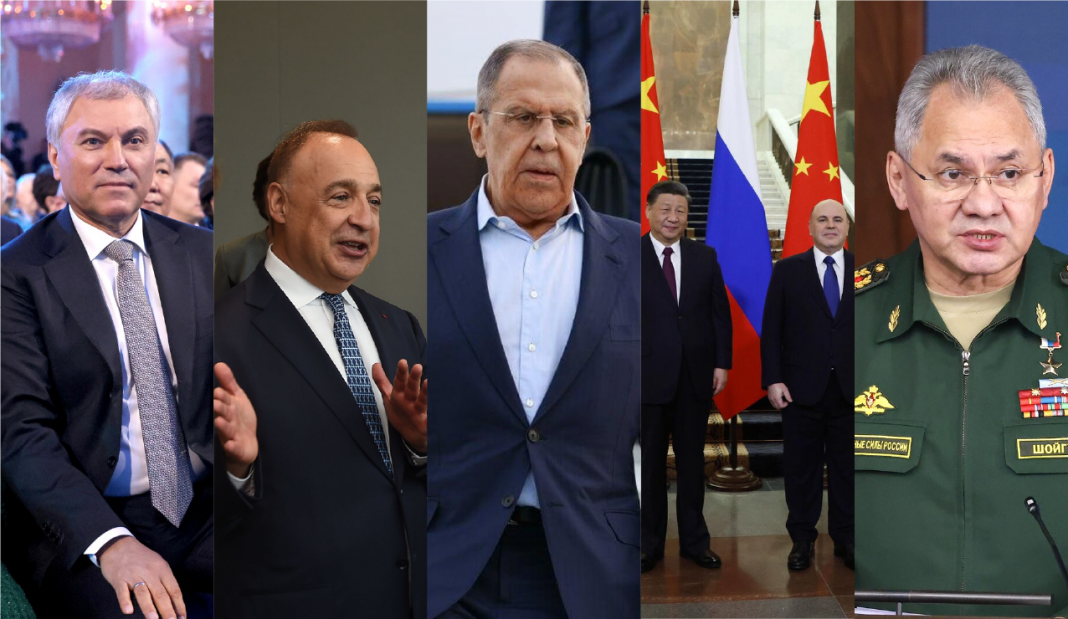This report describes the key events that significantly impacted Russia’s political, economic, and social processes.
Based on the results of the past week, the following trends can be summarised:
- Recently, Putin has begun to pay a lot of attention to the parliamentary component of the political process in Russia. A week earlier, he met with the leaders of the Duma factions, which was preceded by a widely publicised visit of State Duma Speaker Vyacheslav Volodin to China. Now, it has been decided to gather parliamentarians (representatives of both chambers) and representatives of legislative assemblies from the regions. This event pursued a political goal: to show the unity of the entire legislative branch in Russia around the idea of supporting Vladimir Putin and his political course. But at the same time, most likely, it can be assumed that after the elections, Putin may come up with an initiative to expand the functions of all legislative assemblies and transfer to the legislative assemblies several issues that will simulate the deepening of democracy, and will also partially divert the focus of attention from the central government.
- China and Russia are building a genuinely close economic union that benefits both sides. Obviously, this alliance is aimed at involving the maximum number of states in its orbit, but the Moscow-Beijing axis will be decisive. Despite the increase in trade to $218 billion, this is still not particularly impressive, given that trade between mainland China and Taiwan exceeds $300 billion. It is quite possible (judging by the personal composition of the delegation) that Russia and China have again reached an agreement on a complete renunciation of the dollar in mutual settlements – especially considering that at the beginning of 2023, China and Saudi Arabia agreed on de-dollarisation in mutual settlements, and not so long ago, Saudi Arabia and Russia agreed on the same thing. That is, Mishustin and Li Qiang talked about ways to put into practice the political agreements reached by Putin and Xi Jinping.
- As one of the Russian experts joked, “Why are there any other names on the ballot besides Putin?” After all, it is clear that the result of the elections is predetermined, and one can only argue whether Putin will have more than 80% support or a little less. In authoritarian societies, elections are not a determining process but only a simulated action. To date, 29 candidates have decided to participate in the elections; obviously, their number will change. But at the same time, the presidential campaign will set the ideological vector for the coming years, new program documents will be formulated, and Putin will partially change his circle and people in key positions. As for the “New People”, their role in Russian politics will gradually increase – as a “partner of the authorities” and a companion of “United Russia”.
This report highlights the following topics that were most relevant for Russia during 18th – 24th of December:
1. Video appeal of Vladimir Putin to the participants of the meeting of the CIS’ Council of Heads of Government;
2. Putin’s speech at a meeting of the Council of Legislators;
3. Putin’s participation in an extended meeting of the board of the Russian Ministry of Defense;
4. Mikhail Mishustin’s visit to China;
5. Sergei Lavrov’s visit to Tunisia;
6. Accusation of Nikolai Patrushev for organising the murder of Yevgeny Prigozhin;
7. Beginning of registration of candidates for presidential elections;
8. Introduction of sanctions by Ukraine against Leonid Blavatnik;
9. New York Times article about Putin’s readiness for negotiations on Ukraine.
This Content Is Only For Subscribers
- Video appeal of Vladimir Putin to the participants of the meeting of the CIS’ Council of Heads of Government
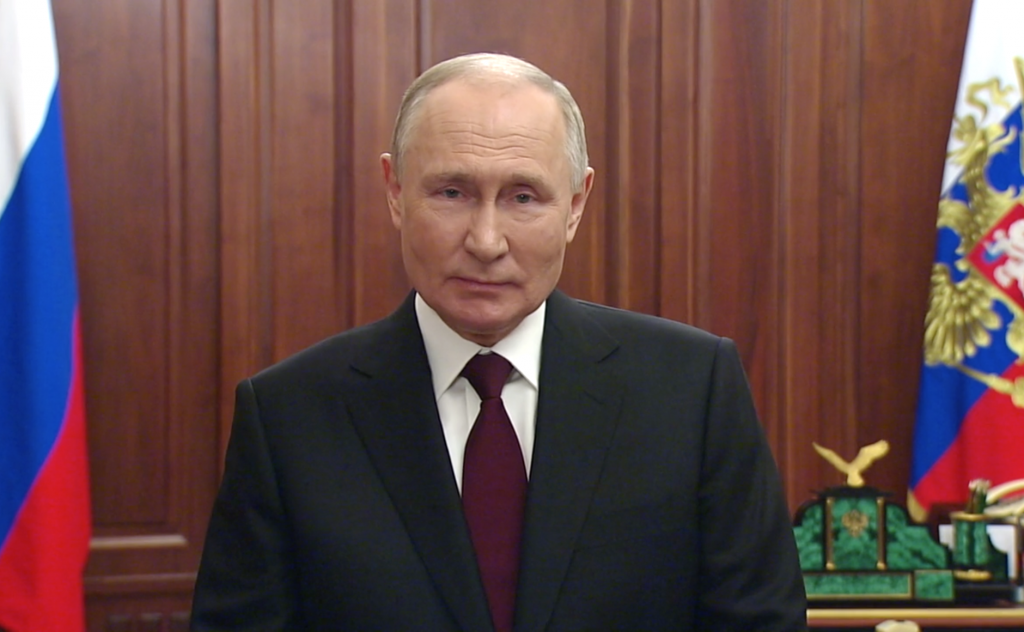
On Monday, December 18, Vladimir Putin delivered a video message to the participants of the Council of Heads of Government of the CIS meeting in Moscow. The main topic of the meeting was the expansion of cultural and humanitarian interaction within the Commonwealth. Also, following the meeting, the heads of government signed a statement on the prospects for cultural and humanitarian cooperation.
Key theses:
- “I think you will agree that we have inherited a truly unique civilisational fusion of traditions and customs, languages and literature, art and folk art. And our task is to preserve this common multinational heritage as much as possible and enrich it with new content.”
- “During Russia’s chairmanship in the Commonwealth, which will begin on January 1, we plan to continue and develop the practice of holding a wide range of joint events in a variety of areas of art, education and science, including using the resources of the CIS Interstate Fund for Humanitarian Cooperation.”
- “Of course, we also aim to continue the closest cooperation on issues of preserving the memory of our common past, combating attempts to falsify history and glorify Nazism.”
- “Naturally, during its chairmanship, Russia will pay special attention to preserving our common heritage – the Russian language, which has been and remains the language of interethnic communication for hundreds of millions of people both in our countries and around the world.”
Outcomes and outlook:
This appeal should be considered an exclusively ritual action, a kind of congratulations to the allies on the New Year. At the same time, this action aims to demonstrate the commonality of positions and unity. And if the emphasis was on economic and political interests earlier, the cultural and humanitarian commonality is emphasised. This is extremely important for Putin: he demonstrates in this way that Russia does not have international isolation, but a circle of states is being created that are tolerant and warm towards Russia and its leadership.
- Putin’s speech at a meeting of the Council of Legislators
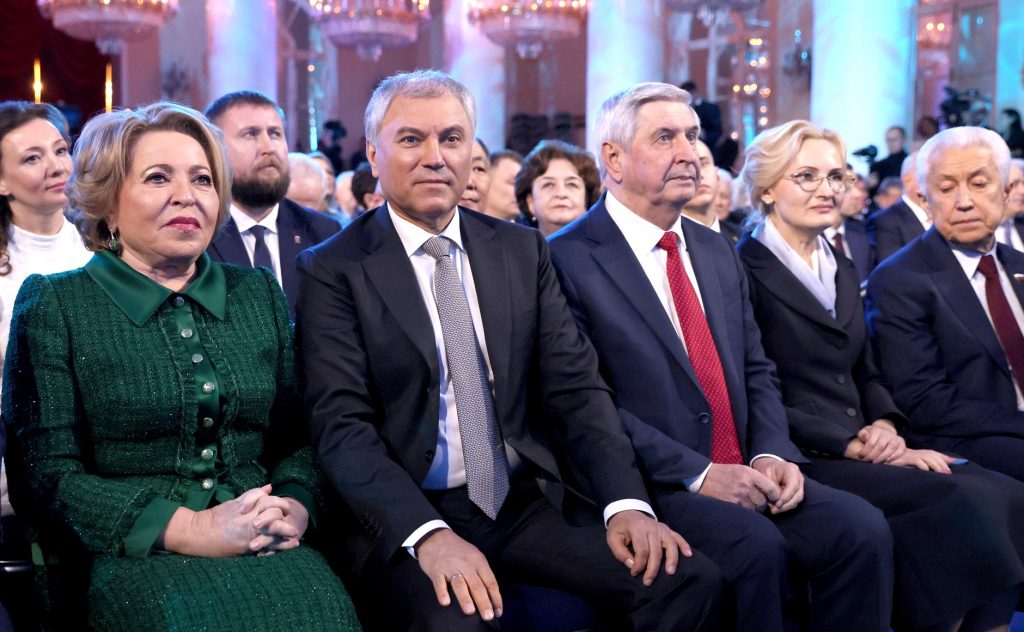
On Wednesday, December 20, a meeting of the Council of Legislators was held in Moscow, dedicated to the 30th anniversary of the Federal Assembly of the Russian Federation. The Russian President also participated in the event and addressed other participants in the meeting.
Key theses:
- “I will especially note your joint efforts within the framework of parliamentary diplomacy. And I want to say that both in the 90s and already in the 21st century, representatives of the Federation Council and the State Duma, colleagues from the regions, and municipal representative bodies of government, with their courageous, active, professional, I want to emphasise this, work on international platforms made a great contribution into the revival, and then into the gradual, consistent strengthening of the authority and influence of our country, into the promotion of Russia’s sovereign course as one of the leaders of the world majority, the objective process of building a fairer multipolar world.”
- “People’s gatherings, councils, then the experience of local self-government – this is all important, this is all our heritage. This connection of times, the principle of continuity of state development, certainly enriches us, emphasises and strengthens our sovereign worldview, political and parliamentary culture, and helps us make informed responsible decisions.”
- “The work of both federal and regional parliaments and local representative authorities has become more mature and professional over the past years. And this is reflected in the quality of your work. Let me also remind you that the amendments to the Constitution introduced in 2020, including expanding the powers of both chambers of the Federal Assembly, significantly strengthened their influence and status in a unified public power system.”
- “We are faced with many tasks; they require constant attention, additional solutions, and, of course, effective legislative support at the federal and regional levels. I am confident that it is the responsibility of each of us, a deep understanding of common goals, the fundamental interests of the people of Russia that will continue to set the vector for all our joint work.”
Outcomes and outlook:
Recently, Putin has begun to pay a lot of attention to the parliamentary component of the political process in Russia. A week earlier, he met with the leaders of the Duma factions, which was preceded by a widely publicised visit of State Duma Speaker Vyacheslav Volodin to China. Now, it has been decided to gather parliamentarians (representatives of both chambers) and representatives of legislative assemblies from the regions. It is evident that this event pursued a political goal – to show the unity of the entire legislative branch in Russia around the idea of supporting Vladimir Putin and his political course. But at the same time, most likely, it can be assumed that after the elections, Putin may come up with an initiative to expand the functions of all legislative assemblies and transfer to the legislative assemblies several issues that will simulate the deepening of democracy, and will also partially divert the focus of attention from the central government.
- Putin’s participation in an extended meeting of the board of the Russian Ministry of Defense
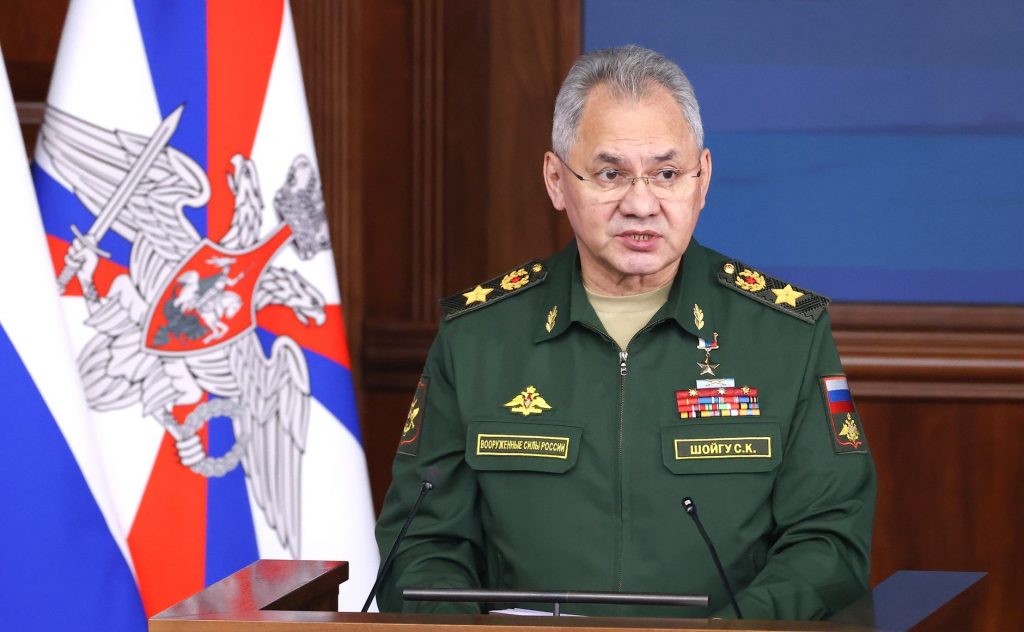
On Tuesday, December 19, an extended meeting of the board of the Ministry of Defense of the Russian Federation was held at the National Defense Management Center of the Russian Federation, in which the Russian president also took part and addressed the board members. In his address, Putin voiced several theses about the West’s desire to continue the war with Russia, as well as the need to continue the war against Ukraine.
Key theses:
- “2023 was a tense year for the Armed Forces, and I want to say right away that our soldiers and officers, commanders at all levels courageously and professionally solved problems during the [so-called] “special operation,” ensured the country’s sovereignty at the global level, nuclear missile parity, and strategic security of Russia. At the same time, high combat readiness of units and formations of all military districts and fleets was maintained. Combat training was conducted systematically, strictly according to plan, and mobilisation, technical, and personnel issues were resolved.”
- “The events of the current year have confirmed; we all see this: the West continues to wage a hybrid war against Russia, actively supplies the Kyiv regime with intelligence information in real-time, sends military advisers, transfers modern weapons systems, including highly mobile multiple launch rocket systems, missile systems long-range, cluster munitions, and a large number of new unmanned aerial vehicles. As we know, he plans to transfer multifunctional F-16 fighters to Ukraine: pilot training is underway in the West.”
- “Recently, the activity of the NATO military bloc as a whole has sharply increased. Significant forces from the United States, including aircraft, have been deployed to our borders. The number of Alliance troops in Eastern and Central Europe has increased. As we know, Finland has already been drawn into NATO, and Sweden plans to join. In fact, this means another stage in the Alliance’s approach to our borders.”
- “The West is not abandoning its strategy of containing Russia and its aggressive goals in Ukraine. Well, we are not going to give up our goals of the [so-called] “special military operation.”
- “The enemy is suffering heavy losses and has largely wasted its reserves, trying to show its real masters at least some result of its much-hyped so-called counter-offensive. By the way, the myth about the invulnerability of Western military equipment also collapsed.”
- “We will have to seriously increase the production and supply of high-precision projectiles and various types of drones. I know that changes are happening, and they are happening quite quickly. I will say more about this, but we still need to work on it and consolidate this trend. Air defense operations also require improvement.”
- “Of course, our well-known systems – Pantsir, Buki, S-300, S-400 – work flawlessly; they are the best in the world without any exaggeration. But what we didn’t pay attention to before, we thought that it was some kind of trifle, some kind of plywood and so on, some small drones that fly – no, it turned out that this also causes damage, and this must not be missed under any circumstances.”
- “I would like to draw your attention to several priority and systemic tasks. First. In the context of the changing nature of military threats and the emergence of new military-political risks, the role of the nuclear triad, which ensures the balance of power, the strategic balance of power in the world, has grown significantly.”
- “Second. The achieved indicators in the re-equipment of the nuclear triad are a benchmark for our work on conventional weapons and equipment. Their supplies to the troops have tripled compared to last year. It is expected that, in general, the state defense order by the end of 2023 will be completed at a level of about 98 percent. We must continue to send the most modern weapons to the troops.”
- “The third most important task is the timely, full supply of everything necessary to the troops participating in the [so-called] “SVO.” Over the past year, the Coordination Council under the Government and the working group of the Military-Industrial Commission have been actively working on implementing this task. Regional heads and representatives of the defense industry provide effective assistance. And, of course, there are results; the supply of troops is improving.”
- “The fourth is, as I already said, the widespread use of the experience gained during the [so-called] special operation in operational and combat training, in the educational processes of military universities and academies. I know that such work is actively underway. Programs and training plans for personnel have been updated, in particular, training modules for working with drones have been included in the programs of all educational institutions and centers of the Ministry of Defense. The educational and material base of the training grounds is being modernised. Instructors with combat experience are involved in conducting classes.”
Outcomes and outlook:
In essence, Putin formulated a military agenda for the next three months (the time before the presidential elections). And thus he took off the rose-colored glasses from those who think that Russia will make some kind of concessions or peace negotiations soon. The military topic will become one of the central ones in the preparation for the elections. The Ministry of Defense will be tasked with showing concrete results on the battlefield that can be “sold” as Putin’s merit. Society will continue to cultivate fear of the threat from the West, which usually has the effect of “rallying around the leader.” Thus, you can be sure that the presidential elections in Russia will not bring detente but an escalation of the armed confrontation with Ukraine.
- Mikhail Mishustin’s visit to China
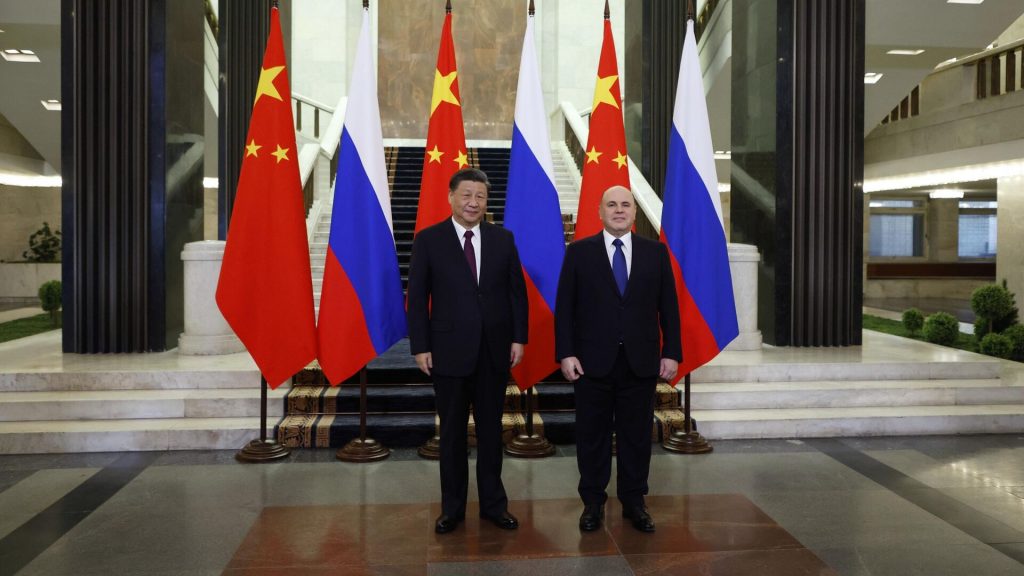
On Tuesday, December 19, Russian Prime Minister Mikhail Mishusti paid a working visit to China, where he took part in the 28th regular meeting of the heads of government of Russia and China and also held negotiations with the Head of the People’s Republic of China Xi Jinping.
Key speech theses voiced at the meeting of the heads of government of Russia and China:
- Li Qiang: “The trade turnover between our countries has set a new record. In total, it has already reached the threshold that the leaders of our countries set. Therefore, we believe that trade turnover will increase in 2024–2025 and beyond.”
- Li Qiang: “Together with you, we proclaim the Year of sports cooperation and interaction next year. And 2025 will be the Year of Culture. We hope that everything will go as planned, we have high hopes for this.”
- Li Qiang: “Our countries have gone through great trials, and we are truly real strategic partners now in the face of unprecedented challenges. We must overcome them together. The trials we are going through now have made us stronger. Moreover, it should be noted that we have a lot in common. Of course, this is also peaceful coexistence. We are setting a model for cooperation, as there should be between large countries. Therefore, of course, this connection plays a significant role in international relations.”
- Mishustin: “After a break caused by the difficult epidemiological situation, we have resumed face-to-face work of our unique intergovernmental mechanism. This will make it possible to thoroughly and confidentially discuss all current issues on the bilateral agenda.”
- Mishustin: “We have developed a special model of interstate cooperation. It is based on mutually respectful, equal, trusting dialogue. Joint work in such important areas is carried out under the strategic leadership of the leaders of our countries.”
- Mishustin: “In the current geopolitical conditions, relations between Russia and China have successfully passed the strength test. Demonstrate a high degree of stability. Since the beginning of the year, mutual trade has increased by almost a third. Moreover, the majority – and this is over 90% – of payments are carried out in national currencies, which indicates the almost complete de-dollarisation of economic relations.”
- Mishustin: “We also welcome the decision of the State Council of the People’s Republic of China to facilitate the access of goods from the Russian agricultural sector to the Chinese market. We are ready to increase their volumes. The volume of Russian energy exports to China is steadily increasing.”
Key theses from the meeting between Mikhail Mishustin and the Head of the People’s Republic of China, Xi Jinping:
- Xi Jinping: “In the first 11 months of this year, our trade turnover reached 218 billion 200 million US dollars. The task that President Putin and I set five years ago was completed ahead of schedule – to increase bilateral trade volume to $200 billion.”
- Xi Jinping: “Today we have laid a strong foundation for interaction; its scale and quality are growing, and our ability to withstand risks is strengthening, which fully demonstrates the stress resistance and broad prospects for mutually beneficial cooperation between the two countries.”
- Xi Jinping: “Next year marks the 75th anniversary of establishing diplomatic relations between our countries. At this new start, the parties must increase the positive effect of high-level political relations, jointly move forward in the comprehensive promotion of socio-economic development and national revival of their countries in the name of forming a community with a common destiny for humanity.”
- Mishustin: “The two summits that took place after your re-election as Chairman of the People’s Republic of China – in March in Moscow and in October in Beijing – confirmed the importance of further strengthening the comprehensive partnership and strategic interaction between Russia and China.”
- Mishusti: “And before we move on to discussing issues of Russian-Chinese cooperation, I would like to express to you, dear Mr. Xi Jinping, my deep condolences for the loss of life as a result of the devastating earthquake in the provinces of Gansu and Qinghai. I know that you are personally worried about this tragedy.”
- Mishustin: “This year, trade and economic cooperation has overcome difficult challenges and reached a new level. Mutual trade turnover amounted to almost 18 trillion rubles or 1.5 trillion Chinese yuan. You’ve already said this. We have completed the task you and President Putin set for us.”
- Mishustin: “We value the strong cultural and humanitarian ties that unite Russia and China. The Years of Physical Education and Sports have ended. Cross Years of Culture will be held in 2024–2025.”
- Mishustin: “Dear Mr. Chairman, very little time remains before the New Year, 2024. In Russia, they love this holiday very much and traditionally celebrate it with family, loved ones, and friends. They are summing up the past year’s results and making bright plans for the future.”
Outcomes and outlook:
The visit of Mishustin and his team (and the delegation included several relevant deputy prime ministers and ministers) was explicitly aimed at ensuring the development of economic ties between the two countries. China and Russia are building a genuinely close economic union that benefits both sides. Obviously, this alliance is aimed at involving the maximum number of states in its orbit, but the Moscow-Beijing axis will be decisive. Despite the increase in trade to $218 billion, this is still not a particularly impressive, given that trade between mainland China and Taiwan exceeds $300 billion. It is quite possible (including judging by the personal composition of the delegation) that Russia and China have again reached an agreement on a complete renunciation of the dollar in mutual settlements – especially considering that at the beginning of 2023, China and Saudi Arabia agreed on de-dollarisation in mutual settlements, and not so long ago, Saudi Arabia and Russia agreed on the same thing. That is, Mishustin and Li Qiang talked about ways to put into practice the political agreements of Putin and Xi Jinping. They also traditionally condemned the issues of energy cooperation and the possible expansion of trade relations.
- Sergei Lavrov’s visit to Tunisia
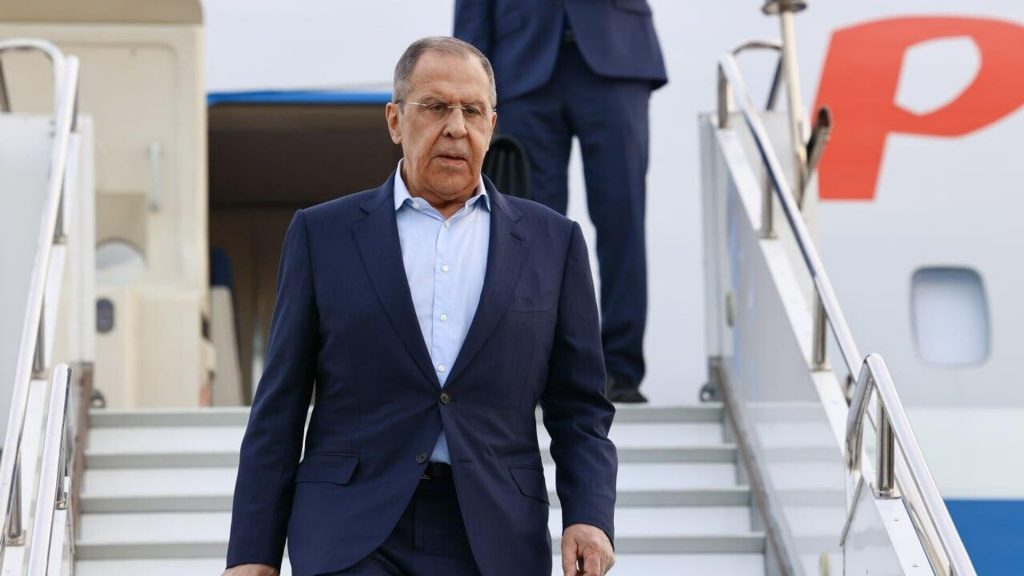
On Thursday, December 21, Russian Foreign Minister Sergei Lavrov arrived on a working visit to Tunisia. As part of the visit, he held a meeting with the Minister of Foreign Affairs of Tunisia and negotiations with the participation of delegations of the two countries. According to the Russian Foreign Ministry head, this visit was carried out to discuss cooperation.
According to Lavrov, this trip is an opportunity to discuss cooperation between the two countries in the economic, humanitarian, and high-tech spheres as well as current international issues. Following his visit to African states, Sergei Lavrov held a press conference and answered questions from journalists:
Key theses:
- “I don’t want to go into details now, but we know for certain that any trip of the Russian delegation, including the delegation of the Ministry of Foreign Affairs, to the countries of the Arab world, the Middle East, and North Africa is always preceded by demarches of Western diplomats who warn and warn where -they even, as they like to say, “hint at consequences.”
- “My colleague, Minister of Foreign Affairs of Tunisia Ammar, in a conversation today, when we touched on trade and economic issues and went to foreign economic aspects, said that as part of the reforms that Tunisian President Said has been implementing since 2021, organising a referendum in support of political reform systems, including the holding of parliamentary elections. Local government elections will take place on December 24. Based on their results, the second chamber of parliament will be formed for the first time. As part of these reforms, the President of Tunisia has decided to pay off all the debt the country has accumulated over the past years.”
- “Of course, today we confirmed our interest in the Intergovernmental Commission on Trade, Economic, Scientific, and Technical Cooperation (which will resume its work in the first quarter of next year) to keep all these processes under the supervision and, where necessary, provide political impetus.”
Outcomes and outlook:
For Lavrov, the trip to Tunisia completes the series of African visits in 2023. If earlier visits were made to the states of Equatorial Africa, the Sahel, and South Africa, now the Maghreb is next. Tunisia has long been building friendly relations with Russia, and Russia understands that agreements with Tunisia and Egypt are necessary to effectively work in Libya, where the Russian Federation has serious political and economic interests. Tunisia is also important as one of the key players in the Arab world. That is why Lavrov’s trip is important for building a multifaceted game in the region.
- Accusation of Nikolai Patrushev for organising the murder of Yevgeny Prigozhin
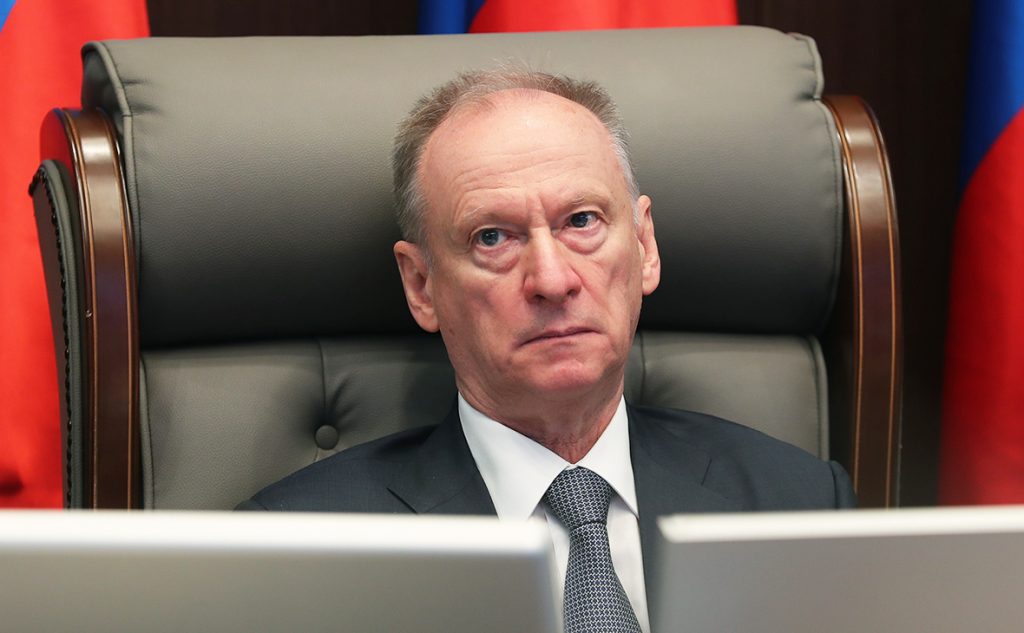
On Friday, December 22, the American edition of The Wall Street Journal published an extensive article concerning “representatives of Western intelligence services and a former Russian intelligence officer,” it is noted that Secretary of the Russian Security Council Nikolai Patrushev is behind the death of Yevgeny Prigozhin. The publication has called him “Putin’s right hand” for decades.
According to the information published in the article, the explosive device was placed under the wing of the plane on which Prigozhin was heading home to St. Petersburg. It is also noted that the murder of Prigozhin was prepared for two months and was personally approved by Patrushev. Allegedly, Patrushev has long warned Putin that relying on Wagner in Ukraine gives Prigozhin too much political and military influence, threatening the Kremlin. Patrushev, according to the publication, stopped Prigozhin’s rebellion at the end of June. And I saw in it an opportunity to get rid of Prigozhin forever.
The publication writes that it is Patrushev who controls the levers of the vast bureaucratic machine that keeps Putin in power. He is also behind many of the “darkest episodes of Putin’s presidency,” many of which ended in death for Kremlin opponents. Patrushev is also close to China. One of the White House officials expressed the opinion that if Prigozhin’s rebellion were successful, Beijing would try to put Patrushev in Putin’s place. The publication describes him as a lover of various conspiracy theories who is convinced that the United States is trying to seize Russian resources.
Commenting on this publication, Putin’s press secretary Dmitry Peskov called it “pulp fiction”: “We saw this article, but would not like to comment on it. It is unlikely that such articles can be commented on. Unfortunately, the WSJ likes to produce pulp fiction.”
Outcomes and outlook:
The WSJ article aims not to establish the truth but to sow doubt among Russian elites. The actual political weight of Nikolai Patrushev in Putin’s entourage today is not as high as American journalists say. He could not personally give the order to destroy the plane with Prigozhin on board. For Putin, such an order was absolutely unnecessary – Prigozhin did not pose a danger (his June speech was nothing more than a stage performance). In addition, Putin gave his word to Prigozhin regarding his personal safety – and from the point of view of Putin’s status as an “arbiter” among the Russian elite, violating this word is fraught with damage to his reputation. That is why in Russia itself, the consensus working version of the crash of the plane with Prigozhin on board is a terrorist act organized by one of the Western intelligence services (in Russia, they talk in a low voice about the involvement of the French special services in the crash). The publication of the article in the WSJ is an attempt to take a fresh look at the role of Putin’s entourage and Putin himself in this process. According to the initiators of the publication, this material should cause discontent in Putin’s circle, sow discontent with Patrushev and his group, and lead to possible personnel changes at the top. The article is clearly custom-made. It is unknown who ordered the article – the opposition or Patrushev’s ill-wishers in power.
- Beginning of registration of candidates for presidential elections
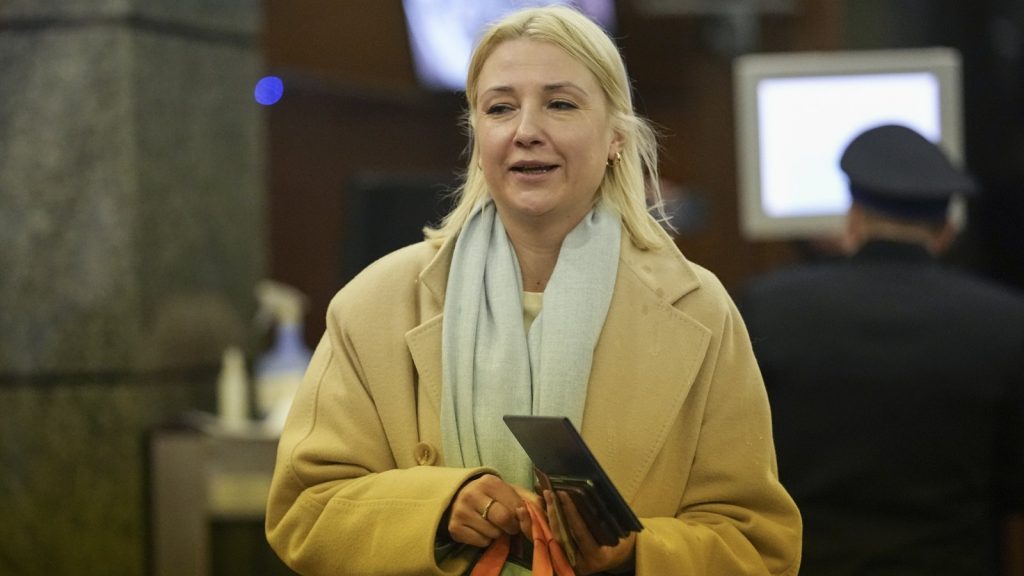
Over the past week, several significant events occurred in Russia as part of the election process. After Putin announced his candidacy for the presidential election, the information environment became noticeably more active, which led to the activation of some candidates who also announced their desire to take part in the upcoming race.
Thus, Ekaterina Duntsova, a 40-year-old journalist from Rzhev, Tver Region, nominated herself for the post of President of Russia. Many representatives of the Russian opposition actively supported her nomination. The team included representatives of the “Our Headquarters” project, which is associated with Mikhail Khodorkovsky (in fact, Duntsova herself began to be associated with him). The slogan of Ekaterina Duntsova’s program was the words: “Let’s return the future to the country,” and on her photo, they wrote, “Russia with a human face.” Duntsova criticised Putin’s policies and advocated ending the war in Ukraine. However, already on December 23, the Central Election Commission of the Russian Federation unanimously refused to register the initiative group of Ekaterina Duntsova for the presidential elections in Russia. The head of the Central Election Commission, Ella Pamfilova, stated: “You are a young woman; everything is ahead of you.”
Also, last week, the press service of the Yabloko party officially announced that party leader Grigory Yavlinsky will also not nominate his candidacy for the upcoming elections.
It also became known that on December 24, the New People party decided to nominate Deputy Chairman of the State Duma of the Russian Federation Vladislav Davankov, who will turn 40 on February 25, as a presidential candidate. Davankov has already put forward his candidacy for the mayor of Moscow in 2023. Since “New People” is a project of Yuri Kovalchuk, we can predict that the Kovalchuks will play their “giveaway game” in these elections.
Outcomes and outlook:
As one of the Russian experts joked, “Why are there any other names on the ballot besides Putin?” After all, it is clear that the result of the elections is predetermined, and one can only argue whether Putin will have more than 80% support or a little less. In authoritarian societies, elections are not a determining process but only a simulated action. To date, 29 candidates have decided to participate in the elections; obviously, their number will change. But at the same time, the presidential campaign itself will set the ideological vector for the coming years; new program documents will be formulated, and Putin will partially change his circle and people in key positions. As for the “New People,” their role in Russian politics will gradually increase – as a “partner of the authorities” and a companion of “United Russia.”
- Introduction of sanctions by Ukraine against Leonid Blavatnik
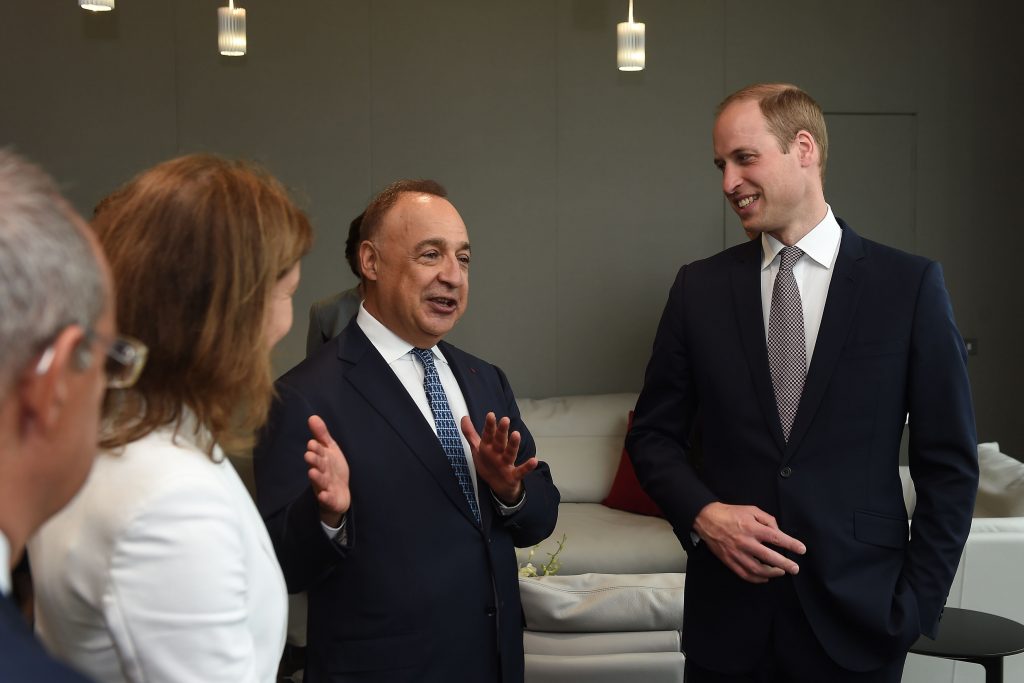
On Saturday, December 23, the National Security and Defense Council of Ukraine published a new list of persons against whom Ukrainian sanctions were imposed. One of the people on this list is the British and American entrepreneur of Ukrainian origin, Leonid (Leonard) Blavatnik. The lion’s share of Blavatnik’s fortune is associated with United States and Europe assets. His holding group, Access Industries, owns a majority stake in Warner Music, 20% of petrochemicals giant LyondellBasell, and sports broadcaster DAZN Group Ltd.
Bloomberg ranked Blavatnik as the 33rd richest person in the world with $40.6 billion. According to Forbes Real-Time, he has $31.8 billion and ranks 45th.
Outcomes and outlook:
Blavatnik is a person who became a businessman in the 90s, during the period of primary accumulation of capital. A former resident of Odessa, he was a partner of Viktor Vekselberg, Mikhail Fridman, and Oleg Deripaska. He has lived in the UK for the past two decades. The issue of including Blavatnik on the sanctions lists was considered earlier, but representatives of the UK, with whom the Ukrainian leadership previously checked their sanctions plans, opposed it. The most exciting thing is that the decision was made without considering London’s opinion – solely after consultations with Washington and only because Blavatnik contributed about $1 million to Donald Trump’s election fund. Blavatnik did not support Russian aggression in Ukraine. Still, at the same time, as they believed in Ukraine, he “did not condemn the aggression.” From the point of view of Russian big business, the situation around Blavatnik will be another argument in favor of the fact that it is impossible to deal with the West – even distancing from Putin will not protect against sanctions.
- New York Times article about Putin’s readiness for negotiations on Ukraine
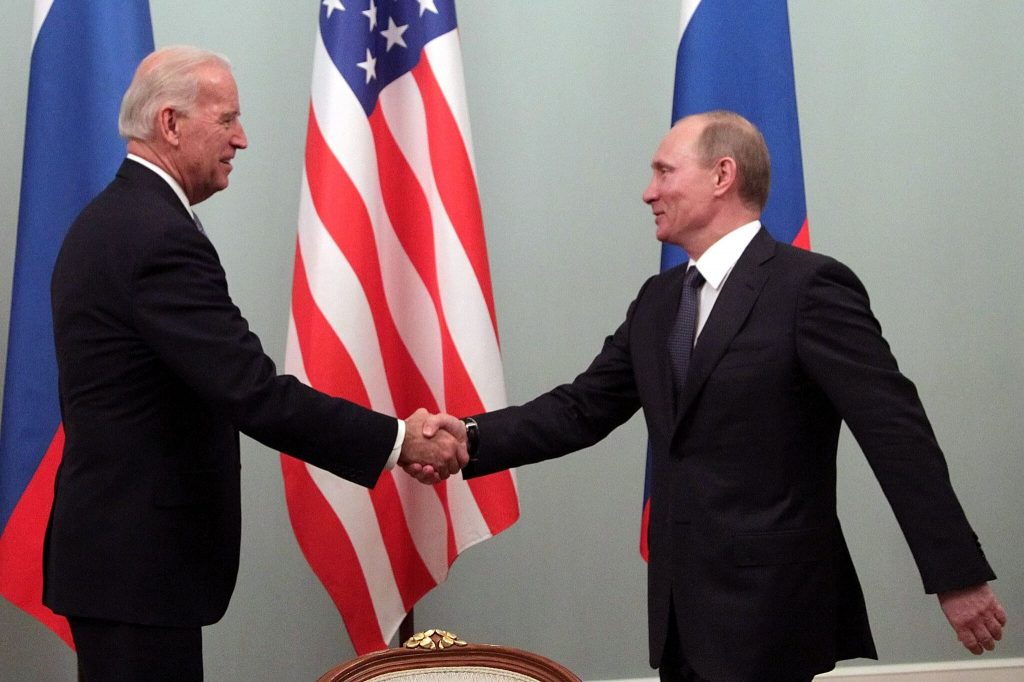
On Saturday, December 23, the American edition of the New York Times published an article on Putin’s readiness to negotiate to end hostilities. The article notes that Putin is hinting to the West that he is ready to negotiate a ceasefire along the front line in Ukraine, and supposedly, despite the belligerent rhetoric, the Russian President is sending signals through diplomatic channels that he is ready to ceasefire. The article’s authors refer to the information received from American officials and former Russian officials close to the Kremlin, who note that Putin now sees the right moment: the Ukrainian counter-offensive has failed, and Western support is fading.
The article also states that in the fall of 2022, after the defeat of the Russian Federation in the Kharkiv Oblast, a similar plan was received from the Kremlin. After which, US Chief of Staff Mark Milley called on Kyiv for negotiations, believing that the current level of achievements was the ceiling of “reasonable expectations.”
“However, other senior American officials believed negotiations were premature,” the publication writes. In addition, Zelensky proposed to continue fighting.
When no deal could be reached that fall, Putin “embraced his role as commander in chief with an almost messianic determination.” According to NYT sources, in the winter of 2023, the Russian president held two video meetings a day with the military, discussing the situation on the battlefield.
At one of the closed meetings, Defense Minister Shoigu said, “Putin is determined to continue the fight.” The minister announced data according to which Russia has an advantage in tanks and combat aircraft, and there are plans to increase military production. Shoigu also said that Russia can, if necessary, mobilize up to 25 million people.
At the same time, the Kremlin tried to create possible negotiation channels to use them “when the time comes.” In particular, for this purpose, the President of the Russian Federation invited leaders of African countries to Moscow (who, we recall, presented their peace plan for Ukraine and traveled with him to Kyiv in the summer).
Outcomes and outlook:
It is unlikely that Putin is actually ready to talk about a ceasefire. His election program and rhetoric are built precisely on military themes and militarism. There is no sustainable demand for de-escalation in Russian society. Any attempts to reduce the degree of tension in relations with Ukraine or the West will lead to losing a small but significant number of voters. Putin is unlikely to initiate a peace process before the end of the elections (however, he will declare such an option – peace is possible, but only on Russia’s terms). In fact, the article in the NYT can be considered a veiled proposal from the United States and, at the same time, as a “touchstone” thrown among the Russian elite. As in the case of the publication regarding Patrushev in the WSJ, we are talking about “probing” weak points and the possibility of effective communications through the publication of certain theses camouflaged as analytical materials.

